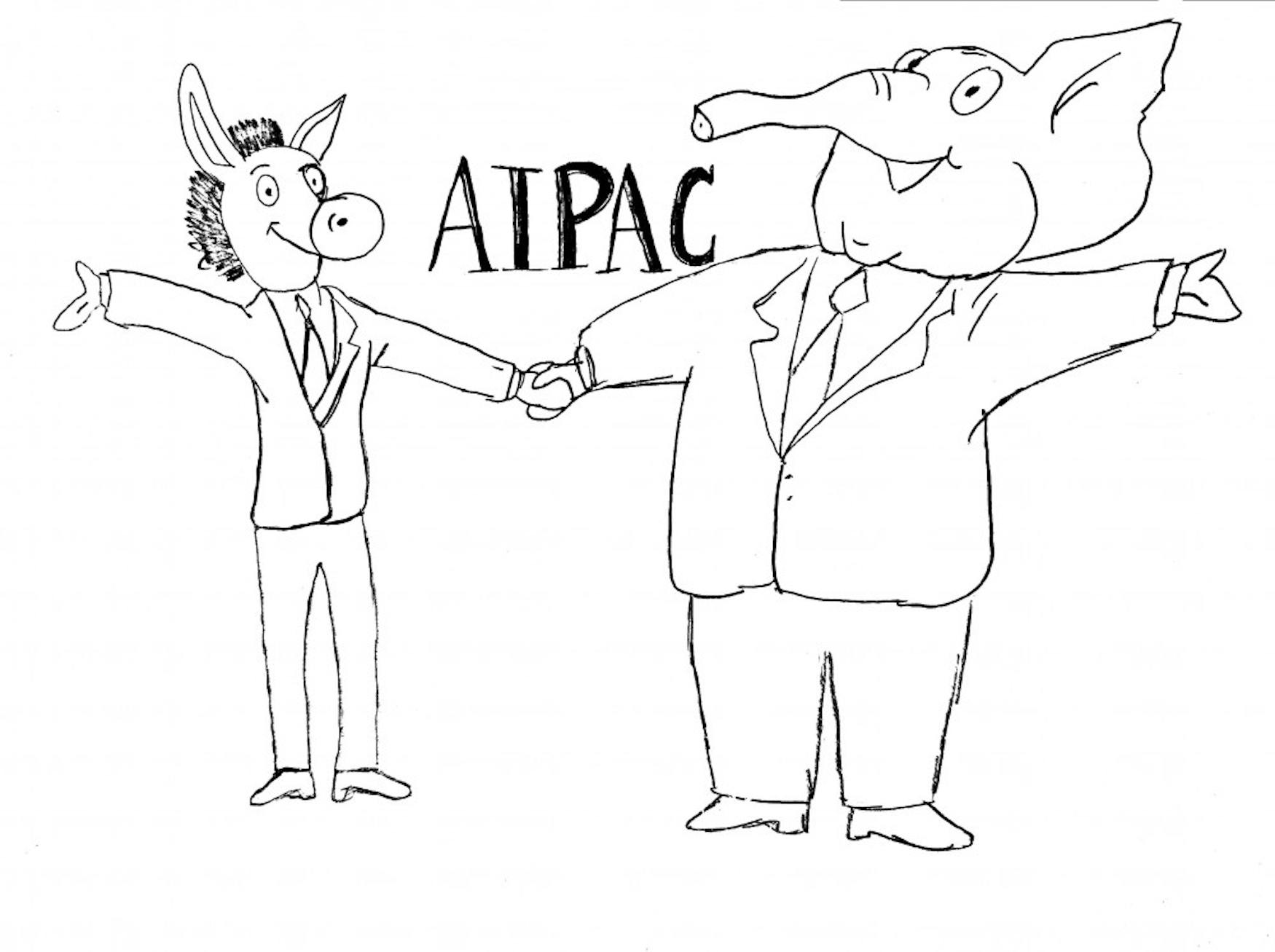Despite its shortcomings, AIPAC is part of a noble cause
This past week, I took a break from my schoolwork to attend the annual policy conference of the American Israel Public Affairs Committee in Washington, DC.
For those of you who know me, my attending their conference may seem strange. I’m neither Jewish nor Christian. I have absolutely no connection to Israel in any sense; I have no family there, and the number of people I know in Israel can be counted on one finger. I’m not a member of Brandeis Hillel, BIPAC or J Street. So why did I miss two days of classes to attend?
For one thing, I have a keen interest in the Middle East. I like democracy and human rights. Israel has both, in a region sorely lacking in them.
For another, it seems unfair to me that no other country in the region has its right to exist questioned at such a basic level. At AIPAC, a lot of time went to discussing the Boycott, Divestment and Sanctions movement, often shortened to BDS. BDS suggests that its adherents boycott Israeli goods, divest from Israeli companies and urge their governments to sanction the Jewish state. It insists that its aim is simply to change the Israeli government’s policies, but its leaders have privately acknowledged their intention to destroy the state itself.
That’s objectively wrong. No one would question Peru’s right to exist, say that the Turks are “not a people” as BDS founder Omar Barghouti said of the Jews, or suggest pushing Vietnam into the South China Sea. Yet somehow these are acceptable, or at least widespread, proposals for how to deal with Israel. At Brandeis, we’re somewhat insulated from this — I hope none of us would even consider supporting such a movement — but its presence elsewhere is undeniable.
Finally, I went to AIPAC in search of a bipartisan consensus on something. It’s saddening to see how far apart the two parties have drifted in the past few years, and it was extremely comforting to be in a place where they could find common ground. The founders of AIPAC pragmatically realized that neither party could stay in power forever, and aligning the then-fragile State of Israel with one faction would be disastrous when the other gained power.
Because of this, unlike other Jewish advocacy groups, AIPAC has always scrupulously avoided partisan politics. It is one of the last truly bipartisan places in Washington, and while I was there, the usual animosity between Democrats and Republicans seemed to dissipate in the face of a common mission. Progressives on either side of me gave Nikki Haley a standing ovation when she concluded her speech. Chuck Schumer drew laughs from the left and the right when he joked about the three sentences that could summarize nearly every Jewish holiday: “They tried to kill us. We survived. Let’s eat.” Everywhere I went, leftists and right-wingers socialized and debated policy issues and learned more about each other.
There were still barbs, of course. Chuck Schumer and Nancy Pelosi’s speeches both had jabs about Trump’s infamous “very fine people” moment in 2017, while a major theme on the right was Congresswoman Ilhan Omar (D-Minn.) and her “all about the Benjamins” tweet. But these were the exceptions rather than the rule. I watched Ted Deutch (D-Fla.), a progressive Democrat, and Mark Meadows (R-N.C.), chairman of the far-right Freedom Caucus, as they shared a stage and discussed the need to keep political differences separate from personal ones. Congresswomen Kay Granger (R-Texas) and Nita Lowey (D-N.Y.), polar opposites in policy, agreed on the importance of increasing female representation in Congress. A West Virginia Republican representative and a progressive lesbian activist talked to college delegates about staying politically involved in the future.
The conference was not without its shortcomings. The whole point of AIPAC is that everyone agrees on the need to support Israel — so what is there really to talk about? Though couched in slightly different terms, the message between all the speakers was the same collection of ideas, and what was inspiring on Saturday night was a bit stale by Tuesday morning.
The delegates were also unanimous in condemning the 2015 Iranian nuclear deal and praising Trump’s return to sanctions. Many of the speakers, notably Ambassadors David Friedman and Ron Dermer, provided a barrage of insightful and accurate criticism of its flaws. However, discussion of a better plan, besides crossing fingers and hoping for the Iranian regime to collapse before it obtained a nuclear weapon, was conspicuously absent.
Finally, I was a little disappointed to see the labyrinthine Palestinian problem, a conflict in which some policies of the Israeli government play a role, simplified to the evil represented by Hamas.
Ultimately, though, the conference was about America’s relationship with Israel, not Palestine or Iran. The need to continue to protect the Jewish state has been dramatically underscored by the recent rocket attacks from Gaza. While the Iron Dome is extremely effective, the events of last Monday show that it is not infallible, and our continued military and political support for Israel is essential. That support makes a real difference; if America stands firmly behind Israel, it sends a strong message that trying to violently destroy the Jewish state is futile. If hostile actors in the Middle East understood that, a lasting peace agreement would be much easier to achieve.
In AIPAC’s mission to preserve that support, I’m proud to have been a part, however small.



Please note All comments are eligible for publication in The Justice.